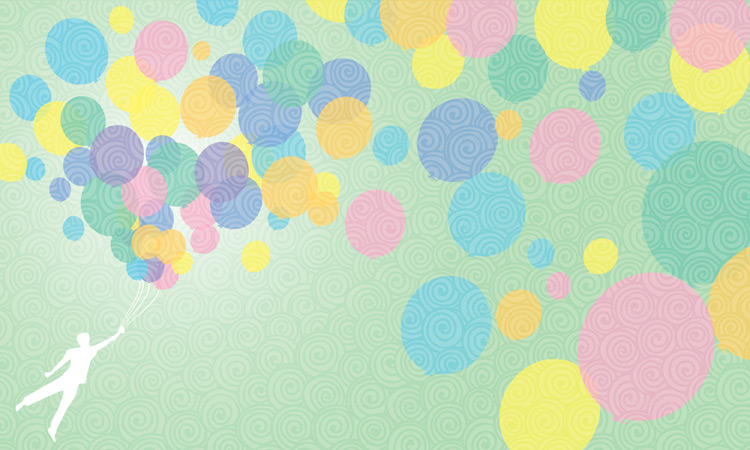 Growing up I dealt with a lot of pain—from partners who betrayed me, parents who didn’t pay enough attention, criticism for being overweight, awkward and academically challenged. There were times when I felt my wounds would never heal. And holding on to those feelings of frustration, anger and sadness did nothing for me but prolong the pain. I stayed the victim, tied to my past. It was only when I started to practice forgiveness that I began to experience inner peace.
Growing up I dealt with a lot of pain—from partners who betrayed me, parents who didn’t pay enough attention, criticism for being overweight, awkward and academically challenged. There were times when I felt my wounds would never heal. And holding on to those feelings of frustration, anger and sadness did nothing for me but prolong the pain. I stayed the victim, tied to my past. It was only when I started to practice forgiveness that I began to experience inner peace.
“People have accidents, make mistakes, behave selfishly and even intentionally try to hurt one another. We can’t escape it,” says clinical psychologist Ryan Howes. “Forgiveness is a vulnerable act that can feel like it opens us up to more pain. But we need to have a way to process and let go of the effects of injury, or we risk serious physical and emotional consequences.”
While we can’t control the behavior of others, we can choose how to react. Studies show that if we can learn to feel compassion and empathy for those who have harmed us, we will stop feeling angry and be able to move on. Forgiveness is scientifically proven not only to mend relationships, but also to improve your wellbeing.
So then, why can it be so hard to forgive? Ian Williamson at New Mexico Highlands University and Marti Gonzales at the University of Minnesota explored this question in a recent study published in the journal Motivation and Emotion, and discovered techniques to work with rather than avoid the barriers to forgiveness. The key, they found, is finding how to forgive in a safe and genuine way.
Barriers to forgiveness include un-readiness, self-protection and “face” concerns. We’ve listed several ways to overcome these barriers, according to Williamson and Gonzales:
Un-readiness
Many people spend a lot of time obsessing on how they were wronged, rather than looking at the situation in a larger context. If you can reframe your perspective to look at the big picture, you’ll begin to see the potential for change and in some cases, reconciliation.
Self-protection
It’s normal to be afraid of making yourself vulnerable. Forgiveness involves putting yourself out there with the risk of opening yourself up to further pain and hurt feelings. The self-protection barrier often applies to those who play the victim in their relationships. But if you can start to build your confidence and start to see yourself as more powerful in your relationships, you will not only be more likely to forgive, but also be able to cope with the outcome if it’s not a positive one.
Saving face
This refers to the need “to save face” to protect our own ego and reputation. Being hurt by someone can damage our sense of self, which is why it’s important to spend time with good friends and family members who can help us cultivate a healthier, more positive view of ourselves. You will find it easier and safer to forgive.
My forgiveness journey was a long one. I had been living with my anger, frustration and sadness for too many years. It was time to for me to learn to forgive and let go.
Can you relate to any of these barriers to forgiveness? I’d love to hear your thoughts in the comments!

Rose Caiola
Inspired. Rewired.
To find out more about Rose’s thoughts on how to live a happier life, click here


8 Comments
cliff gallant
That’s why forgiveness is an essential part of the Lord’s Prayer. It’s essential to human happiness and fulfillment.
Also: I think practicing forgiveness leads you to seeing yourself as others see you. When you ask yourself why someone has treated you poorly you often find that it has at least partly to do with the way you’ve treated them; or maybe the way they’re treating you has to do with something about you that causes people to treat you badly. As with all things, look to yourself first.
Gianna Caiola
Thanks Cliff, wishing you the most happiness and fulfillment in your life!
Paul Heitmeyer
great reminder and tools to forgive. thx!
Gianna Caiola
Thanks, we think so too! much love 🙂
Robin Ehrlich
All issues are opportunities for growth and healing. Others wronging you is the mirror for spiritual development and re patterning mentally and physically. The mirror that is created when someone hurts you
sets us up to understand that it Ok to respond to the situation with our authentic voice. There is no substitute for expression of your reaction. Do not repress yourself because it will haunt you later on. Speak up when your uncomfortable but always listen first. You are responsible for your reactions so think of angels surrounding you even if others have animal energy. Take the good and leave the rest. It is not yours. Forgive and move on.
Gianna Caiola
Thanks Robin <3
Vicki
I think it is more difficult to forgive caretakers from our childhood. When we did not have the brain scaffolding, development to believe anything but “I am not enough” and to self blame/loath. I believe disorganized attachment in childhood further compounds the difficulty of forgiveness. The only thing that I have seen work in these instances is “Living The Bigger Story”. Where what was learned in surviving becomes a roadmap to ease others suffering. Pain becomes touchstone, knowledge and purpose. As we see over and over in the lives of many living their Bigger Story. It so often comes back to story. Thank you for your article.
Gianna Caiola
Thank you for your comment Vicki!